Custom alerts and data visualization let you quickly identify and prevent network congestion issues.
Sure, you can worry about whether your data flows efficiently from point to point, if important information is getting through security, or what might happen if network issues become user issues. Or, you can kick back on the beach and enjoy knowing Paessler PRTG is your bandwidth management software.
Diagnose network issues by continuously tracking your endpoints’ bandwidth consumption. Show bandwidth bottlenecks, quality of service (QoS) parameters, internet usage, traffic patterns, and other key metrics in real time. Visualize monitoring data in clear graphs and dashboards to identify problems more easily. Gain the visibility you need to troubleshoot latency, network congestion, and other network performance issues.
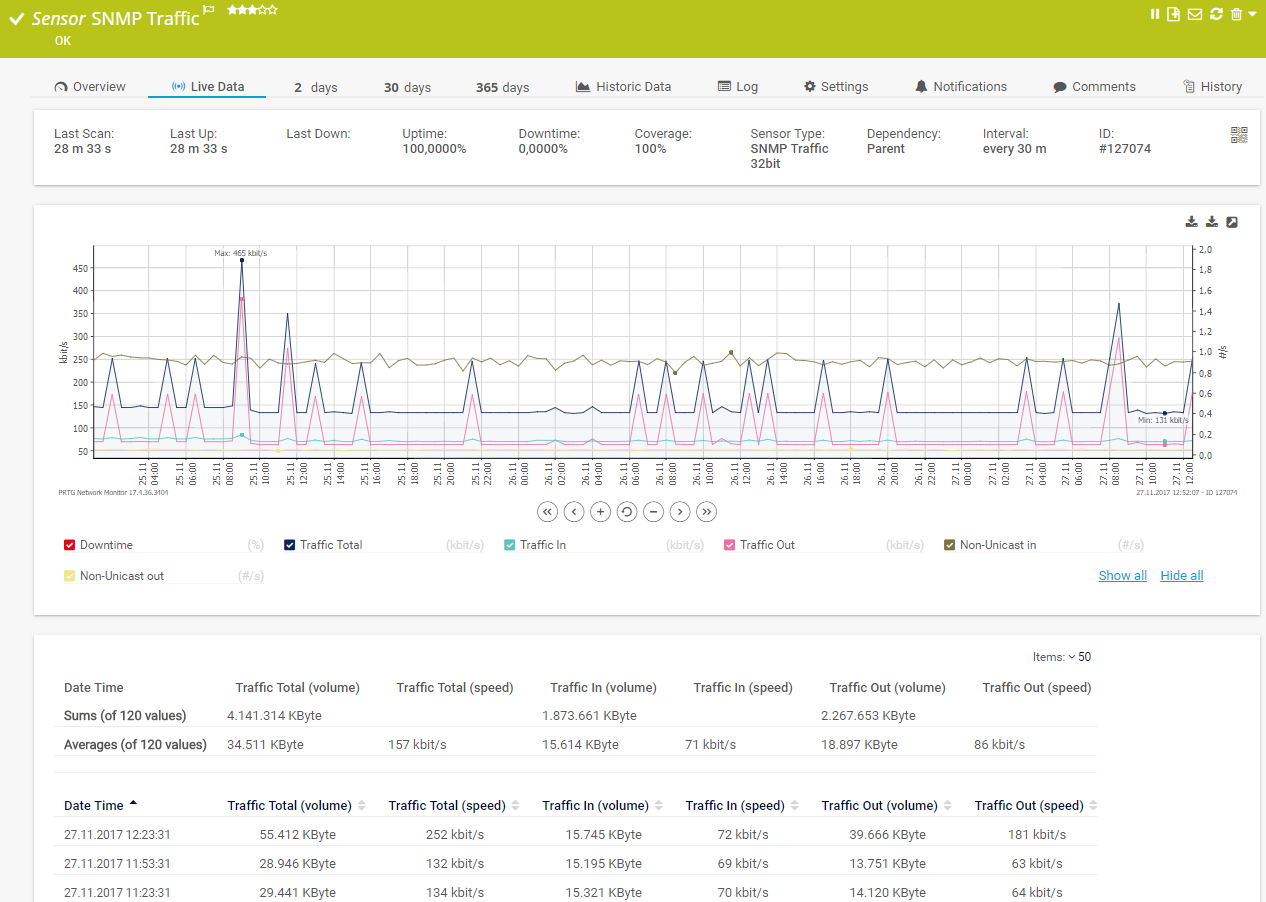
Live traffic data graph in PRTG
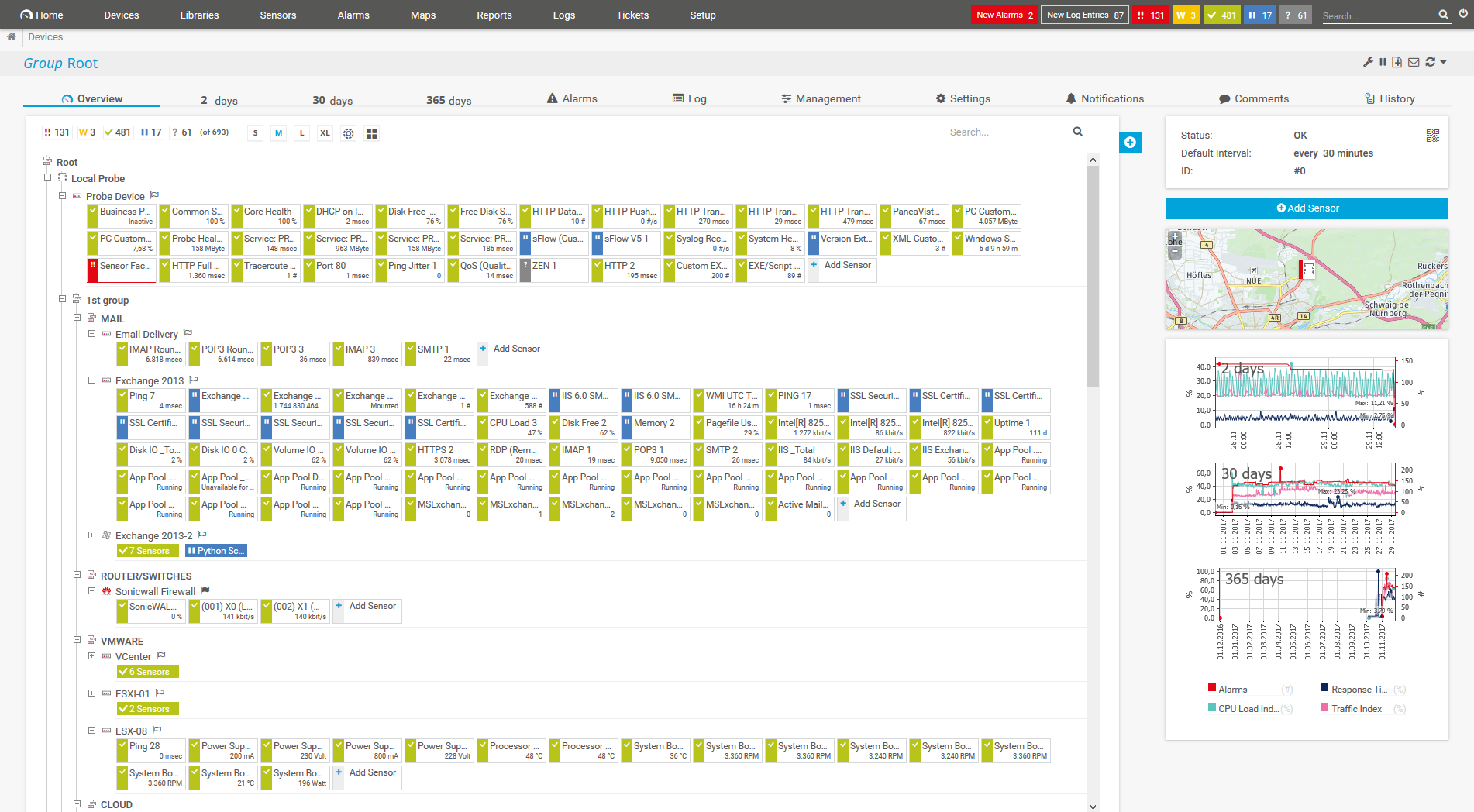
Device tree view of the complete monitoring setup
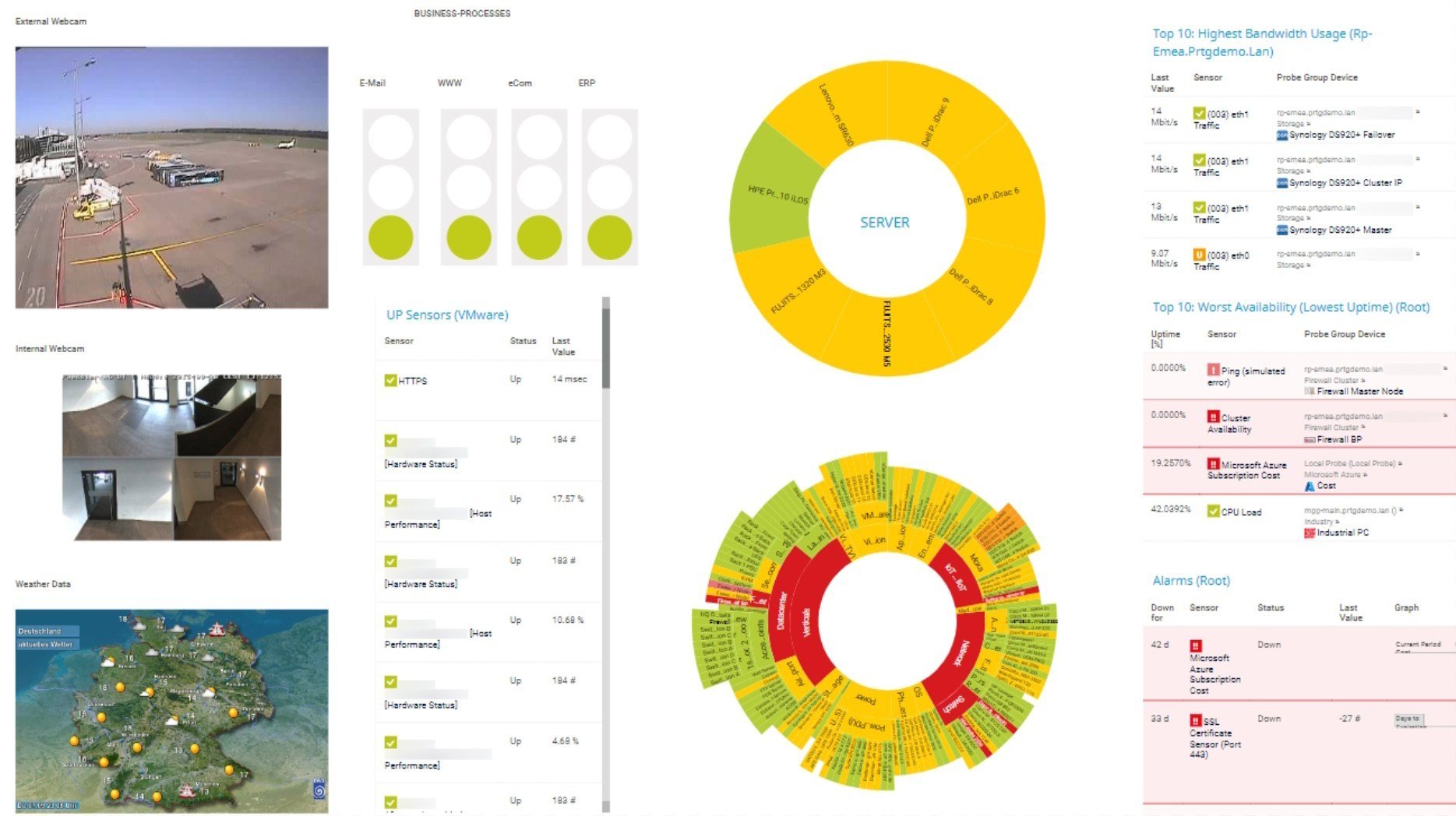
Custom PRTG dashboard for keeping an eye on the entire IT infrastructure

Live traffic data graph in PRTG

Device tree view of the complete monitoring setup
Let’s face it: nobody really wants to have five pieces of software to monitor one network. With PRTG, you don’t have to. Our monitoring software can do way more than bandwidth monitoring and management, and also includes an alarm system, reporting, and custom visualization options. If you opt for a license, you’ll get access to its full range of network monitoring features.
Learn what you need to know about your network for optimal performance, less congestion, better data flow, and more efficient usage. PRTG comes with more than 250 preconfigured sensor types out of the box to help you monitor your entire network, including preconfigured SNMP Traffic, Packet Sniffer, and flow (NetFlow, sFlow, jFlow, IPFIX) sensors.
Outdated equipment or faulty configurations can also lead to malfunctions. PRTG lets you keep a constant eye on your entire IT environment in one central dashboard. Get an immediate overview or dig down for a more detailed view. Easily set up and configure PRTG and see the network information you need when you need it.
PRTG comes with more than 250 native sensor types for monitoring your entire on-premises, cloud, and hybrid cloud environment out of the box. Check out some examples below!
See the PRTG Manual for a list of all available sensor types.
Custom alerts and data visualization let you quickly identify and prevent network congestion issues.
Set up PRTG in minutes and use it on almost any mobile device.
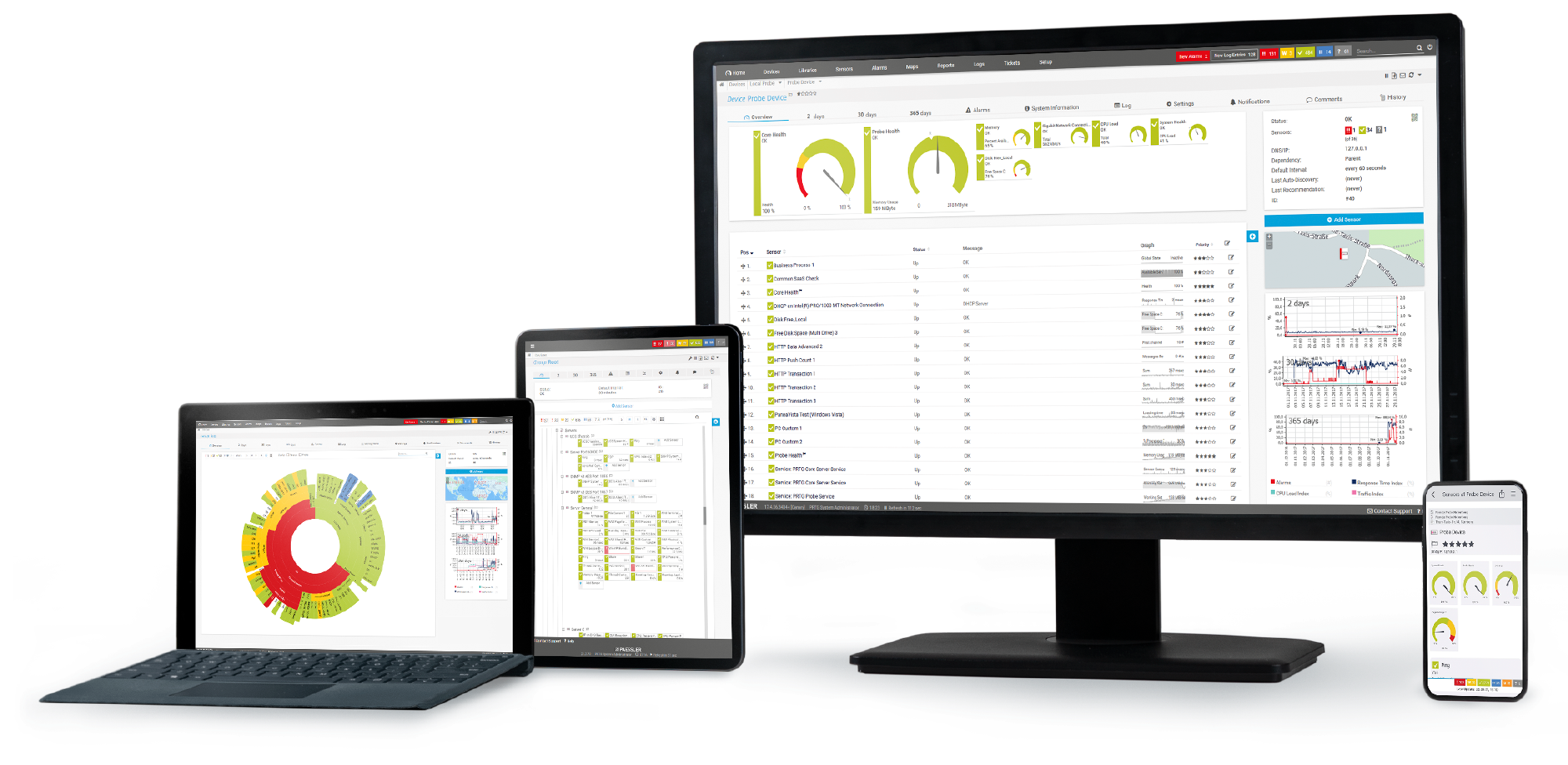
“Excellent tool for detailed monitoring. Alarms and notifications work greatly. Equipment addition is straight forward and server initial setup is very easy. ...feel safe to purchase it if you intend to monitor a large networking landscape.”
Partnering with innovative IT vendors, Paessler unleashes synergies to create
new and additional benefits for joined customers.
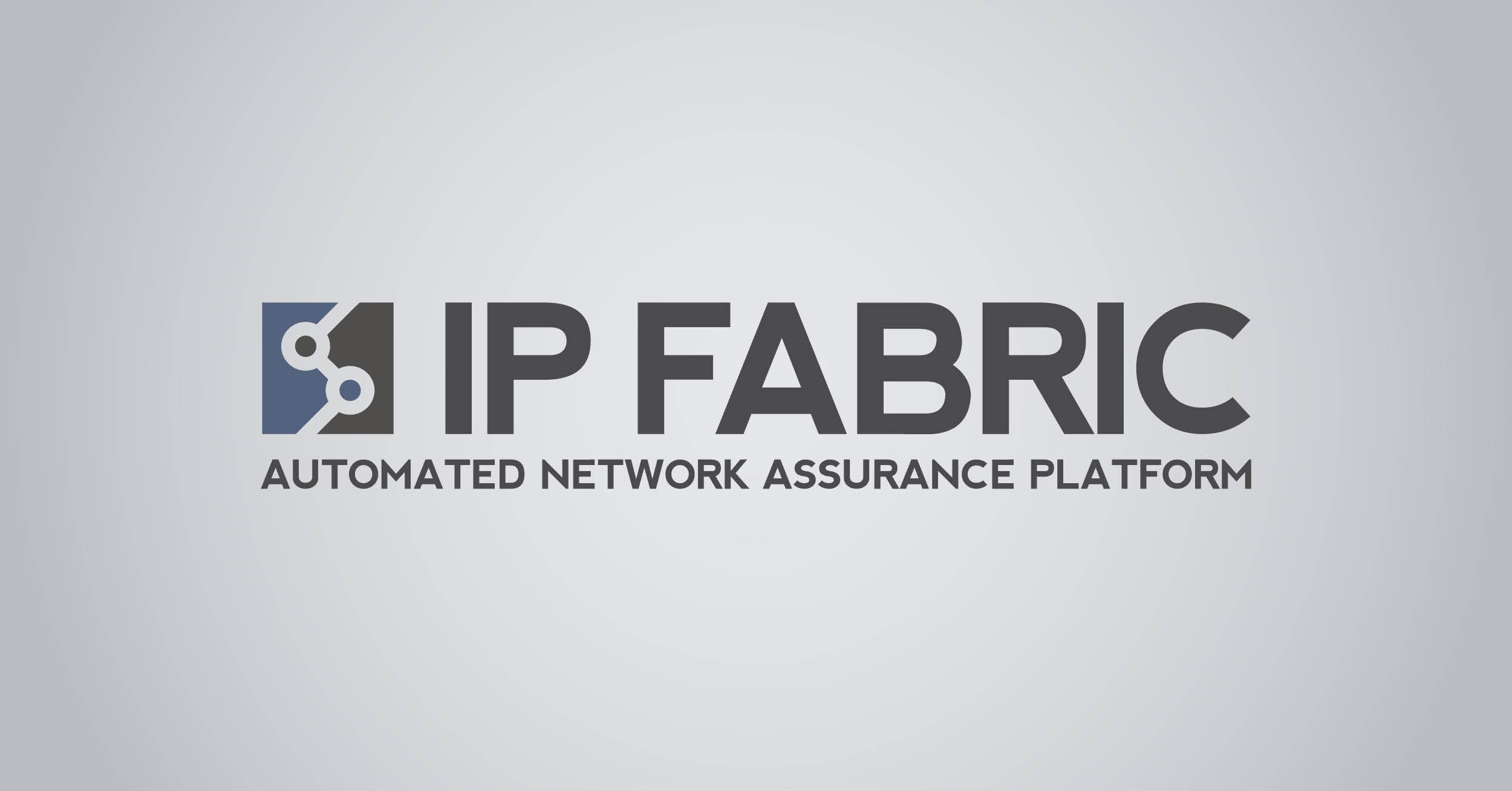
Combining PRTG’s broad monitoring feature set with IP Fabric’s automated network assurance creates a new level of network visibility and reliability.

Rhebo and PRTG offer a comprehensive monitoring solution for IT and OT environments: from condition monitoring through to anomaly and threat detection.
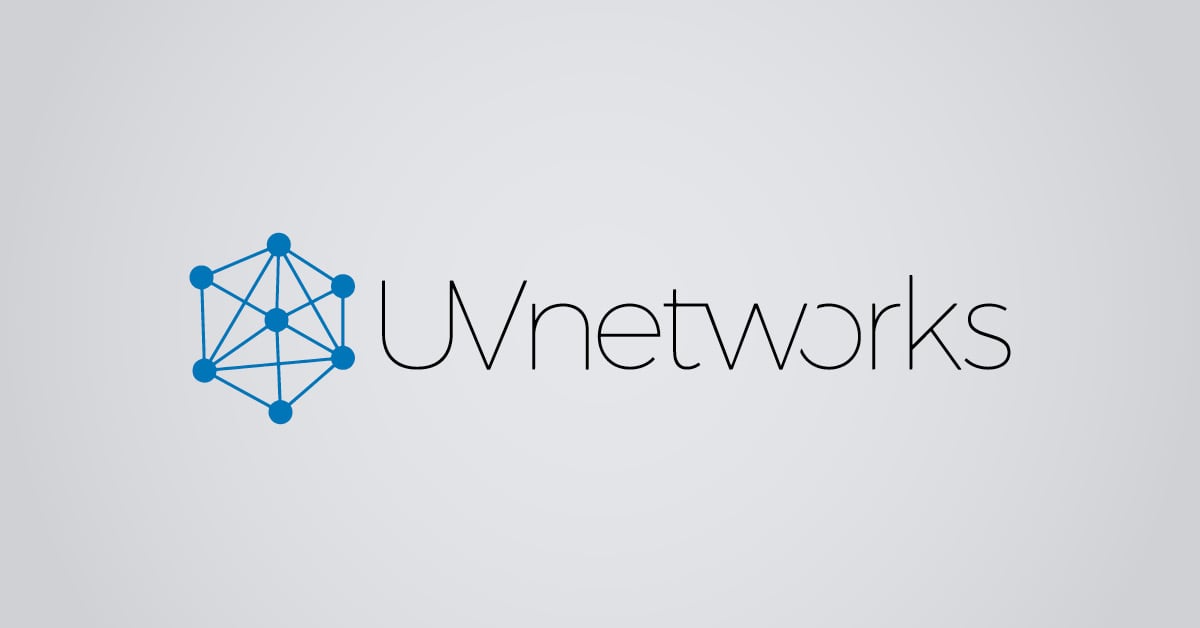
UVexplorer integrates tightly with PRTG to bring fast and accurate network discovery, detailed device inventory, and automatic network mapping to the PRTG platform.
Real-time notifications mean faster troubleshooting so that you can act before more serious issues occur.
Network Monitoring Software – Version 24.4.102.1351 (November 12th, 2024)
Download for Windows and cloud-based version PRTG Hosted Monitor available
English, German, Spanish, French, Portuguese, Dutch, Russian, Japanese, and Simplified Chinese
Network devices, bandwidth, servers, applications, virtual environments, remote systems, IoT, and more
Choose the PRTG Network Monitor subscription that's best for you
Bandwidth management is an important part of network administration. It makes sure that important applications, devices, and connections (such as internet connections or wireless internet access) have the bandwidth they need to operate. It allows informed allocation of network resources, helps you manage your network traffic better, checks if your Internet Service Provider (ISP) meets your bandwidth requirements, and keeps your network more secure.
Yes. Bandwidth management provides a range of management capabilities that positively affect speed. For example, by managing bandwidth allocation, you can reduce network congestion, which has the benefit of improving your network speed.
With bandwidth monitoring, you won’t yet be actively managing your bandwidth. Instead, you'll simply observe the amount of bandwidth that is consumed by your network’s devices and applications and then make a decision on how best to manage your bandwidth.
Active bandwidth management includes the distribution of bandwidth to the devices in your network. A variety of bandwidth management tools are available to help you manage bandwidth. You can also adjust the individual bandwidth consumption of devices in the respective device’s settings.
Bandwidth controlling is usually used synonymously with bandwidth management. You can use it to measure, check, limit, and customize the distribution of your bandwidth and data rates at any time.
With PRTG, you can control your data rate and test bandwidth. You cannot, however, prioritize traffic. If you wish to prioritize traffic, think about picking up a separate bandwidth controller tool.
Yes. PRTG is an all-in-one monitoring solution. Through various sensors, PRTG can track the data passing through your network in real time.
Absolutely! Studies have shown that PRTG can help lower network costs in several ways. Being able to optimize your network helps reduce the cost of bandwidth upgrades. Another way is through resource allocation. Appropriately allocating network resources makes your network perform better, saving costs on network failures or service interruptions.
In PRTG, “sensors” are the basic monitoring elements. One sensor usually monitors one measured value in your network, for example the traffic of a switch port, the CPU load of a server, or the free space on a disk drive. On average, you need about 5-10 sensors per device or one sensor per switch port.
Paessler conducted trials in over 600 IT departments worldwide to tune its network monitoring software closer to the needs of sysadmins. The result of the survey: over 95% of the participants would recommend PRTG – or already have.
Paessler PRTG is used by companies of all sizes. Sysadmins love PRTG because it makes their job a whole lot easier.
Bandwidth, servers, virtual environments, websites, VoIP services – PRTG keeps an eye on your entire network.
Everyone has different monitoring needs. That’s why we let you try PRTG for free.